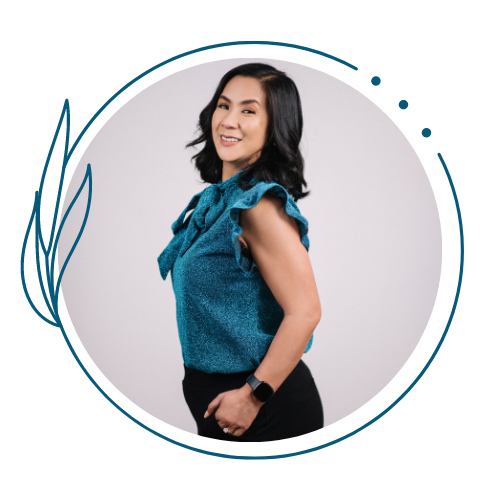The Cultural Roots of Your Self-Doubt (And How to Uproot Them)
She’s Filipino, immigrant, and brilliant—we were on Zoom during a session, and she said something I’d heard too many times to count:
“I feel like I should be more confident by now… but I still doubt myself. Even when I know I’m qualified.”
She wasn’t fishing for compliments.
She wasn’t being humble.
She was being honest.
This is a woman with degrees, experience, and results. She’s respected by her coworkers, loved by her family, and held to superhero status in her community.
But still, when it’s time to speak up, ask for a raise, or even just advocate for her needs?
She shrinks.
And here’s the thing:
It’s not because she’s weak.
It’s not because she lacks ambition.
It’s not even imposter syndrome in the traditional sense.
It’s cultural.
Where the Self-Doubt Really Comes From
Let’s take it back.
Many of us were raised in homes where children were told to be quiet when adults were speaking.
Where you didn’t question authority—especially not in public.
Where humility was a virtue and confidence looked a lot like arrogance.
If you were praised, you were taught to deflect it.
If you were criticized, you were told to take it with a smile.
If you succeeded, you kept your head down and worked harder—not because anyone told you to, but because that’s what you saw growing up.
So now, as an adult in a professional space, you wonder why your voice shakes when you’re asked your opinion.
You wonder why compliments make you squirm.
You wonder why speaking up for yourself feels like rebellion.
It’s not your fault.
It’s just old wiring.
Cultural Values That Helped Us—Until They Didn’t
Let’s be clear: Filipino culture values pakikisama (harmony), hiya (a sense of shame or modesty), and utang na loob (deep gratitude and indebtedness). These are beautiful concepts… but they come with a shadow side.
When pakikisama turns into people-pleasing.
When hiya silences your truth.
When utang na loob keeps you stuck in roles you’ve outgrown.
What once kept our families close and our communities strong…
Now keeps us small, exhausted, and invisible.
How to Uproot It (Without Losing Your Roots)
Here’s the good news:
You don’t have to reject your culture to reclaim your confidence.
You can honor where you come from and expand into who you’re becoming.
Here’s how to begin:
1. Name It.
Start by noticing when your self-doubt sounds like your upbringing.
Is it really you saying, “You’re not ready”?
Or is it the voice of a culture that feared rocking the boat?
2. Reclaim Praise.
Practice accepting compliments without deflection.
Instead of “Oh, it was nothing,” try “Thank you—I’m proud of that.”
Feel the difference in your body when you let yourself receive.
3. Speak, Even If It’s Uncomfortable.
You don’t have to roar. But speak. In the meeting. In the group text. In your own home.
You don’t need a perfect script—you just need your truth.
4. Redefine Respect.
Respect doesn’t mean silence.
It can look like clear boundaries. Direct communication. Confident self-advocacy.
It can sound like: “I value you—and I also value myself.”
A New Legacy
Here’s what I told my client:
You didn’t plant the seeds of self-doubt.
They were handed to you—by your culture, your family, even by well-meaning teachers and leaders.
But you get to decide what grows.
Will you keep watering silence?
Or will you start growing something bolder, brighter, and more rooted in your truth?
Because one day, someone else—your child, your niece, your mentee—will watch how you carry yourself.
And when they see you speak up, take up space, and honor both your culture and your confidence?
They’ll know they can do the same.
And that? That’s how we break cycles.
Not with shame. Not with blame.
But with awareness, healing, and a whole lot of courage.
So yes, your self-doubt may be cultural.
But your confidence?
That can be your revolution.
Sign up for my free newsletter, usually sent once a month (and sometimes more often when inspiration strikes!). These are letters from my heart, filled with insights from my personal journey and client work, honest talk about life, and practical tools for managing self-doubt, tapping into inner wisdom, and embracing personal growth.
If you're seeking greater empowerment, satisfaction, and self-confidence, my newsletter will offer a steady source of inspiration, encouragement, and support





